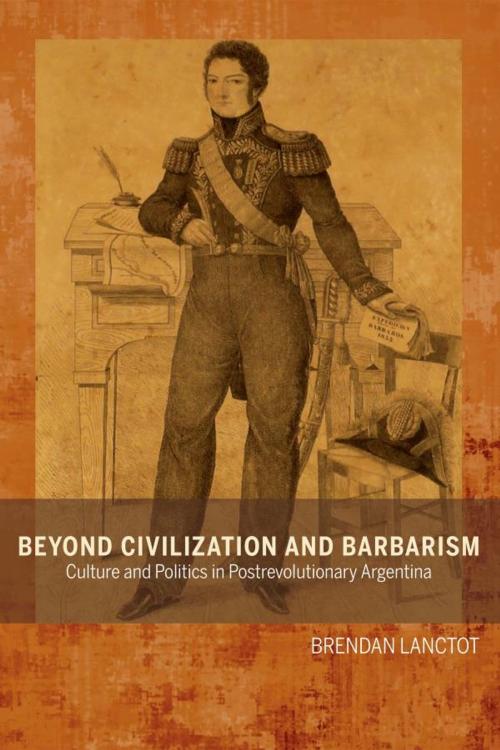Beyond Civilization and Barbarism
Culture and Politics in Postrevolutionary Argentina
Fiction & Literature, Literary Theory & Criticism, Central & South American, Nonfiction, History, Americas, Central America, Latin America| Author: | Brendan Lanctot | ISBN: | 9781611485462 |
| Publisher: | Bucknell University Press | Publication: | December 12, 2013 |
| Imprint: | Bucknell University Press | Language: | English |
| Author: | Brendan Lanctot |
| ISBN: | 9781611485462 |
| Publisher: | Bucknell University Press |
| Publication: | December 12, 2013 |
| Imprint: | Bucknell University Press |
| Language: | English |
Beyond Civilization and Barbarism examines how various cultural forms promoted competing political projects in Argentina during the decades following independence from Spain. This turbulent period has long been characterized as a struggle between two irreconcilable forces: the dictatorship of Juan Manuel de Rosas (1829-1852) versus a dissident intellectual elite. Most famously, Domingo Faustino Sarmiento described the conflict in his canonical Facundo (1845) as a clash between civilization and barbarism, which has become a catchphrase for the experience of modernity throughout Latin America. Against the grain of this durable script, Beyond Civilization and Barbarism examines an extensive corpus to demonstrate how adversaries of the period used similar rhetorical strategies, appealed to the same basic political ideals of republican government, and were preoccupied with defining and interpellating the pueblo, or people. In other words, their collective struggle was fundamentally modern and waged on a mutually intelligible discursive terrain.
Beyond Civilization and Barbarism examines how various cultural forms promoted competing political projects in Argentina during the decades following independence from Spain. This turbulent period has long been characterized as a struggle between two irreconcilable forces: the dictatorship of Juan Manuel de Rosas (1829-1852) versus a dissident intellectual elite. Most famously, Domingo Faustino Sarmiento described the conflict in his canonical Facundo (1845) as a clash between civilization and barbarism, which has become a catchphrase for the experience of modernity throughout Latin America. Against the grain of this durable script, Beyond Civilization and Barbarism examines an extensive corpus to demonstrate how adversaries of the period used similar rhetorical strategies, appealed to the same basic political ideals of republican government, and were preoccupied with defining and interpellating the pueblo, or people. In other words, their collective struggle was fundamentally modern and waged on a mutually intelligible discursive terrain.















